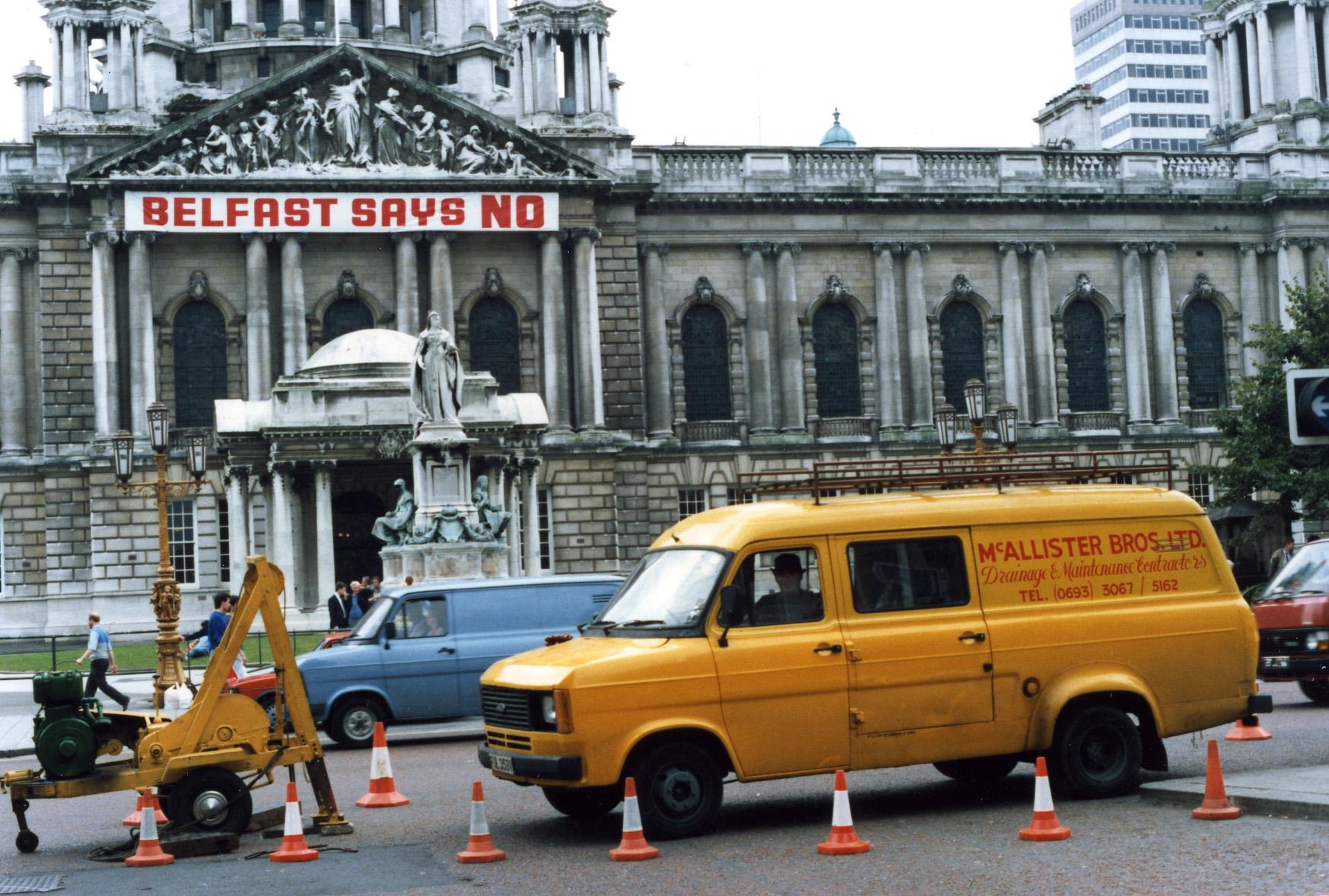Northern Ireland’s government never realised its vision for Craigavon, and the Goodyear factory would close in 1983, but McAllister Brothers went from strength to strength. Eamon and his brothers won contracts with Belfast City Council and the Department for Infrastructure. Their vans and jetting machines multiplied.
We are driven by innovation and enterprise. Take CCTV surveying, for example.
Today, CCTV surveying is an essential part of our work. We use cameras mounted on small robots to explore drains, understand the work we have to do, and review the work we've completed. This technology was new in the 1980s, but we saw its potential even then. McAllister Brothers was the first company to use CCTV surveying in Ireland and among the first in the UK. The first systems were rudimentary – our technicians dragged the camera through pipes on a simple sledge. We invested in our first PearPoint robotic crawler CCTV system in 1988. We adopted new technology as it evolved – moving from VHS to digital, from DVDs to cloud data storage.
We continue to boast the most advanced CCTV surveying equipment and expertise in the industry. WinCan's ground-breaking software helps us collate the vast amount of data our survey teams collect. An array of new hardware enhances our CCTV survey capabilities – optical zoom, pan and tilt cameras, laser scanners. We use the data they collect to create interactive, 3D models that inform better decision-making by developers and water authorities. Since 1987, our survey teams have recorded over 5 million metres of pipeline – roughly the distance from London to Beijing – and more than 125,000 manholes.
We were early adopters of trenchless technology and cured-in-place pipe lining, too. We introduced both to Ireland during the 1990s, helping our customers maintain pipelines without disturbing the surface environment.
Throughout the 1990s and 2000s, McAllister continued to grow. We took on projects as far away as Kuwait and Saudi Arabia, and increased our presence across Ireland and the UK.
